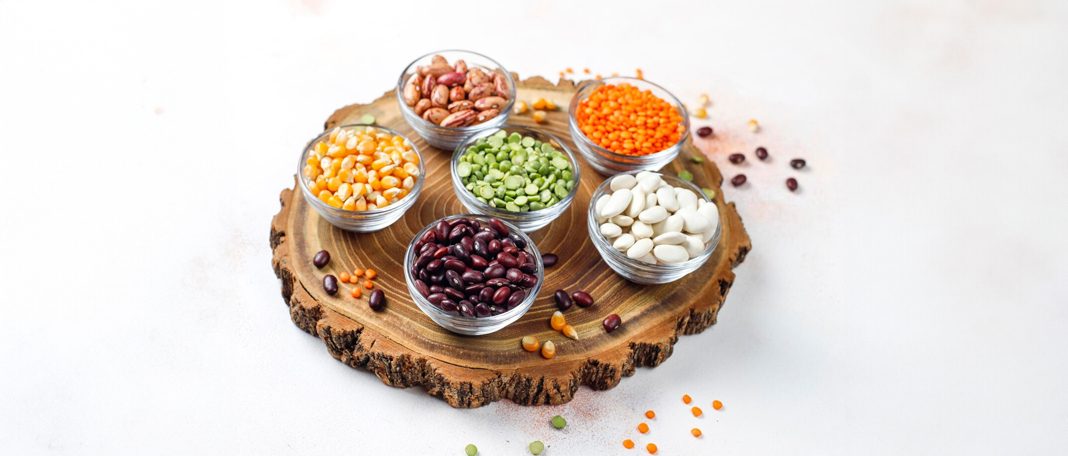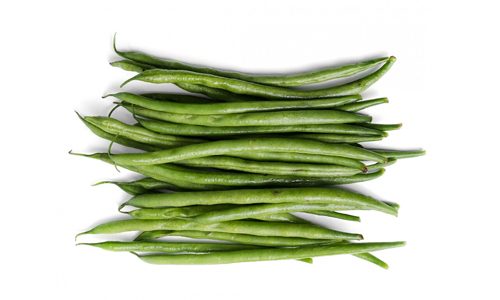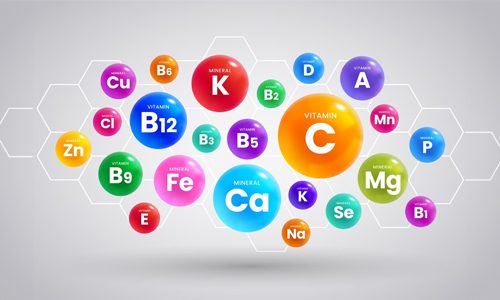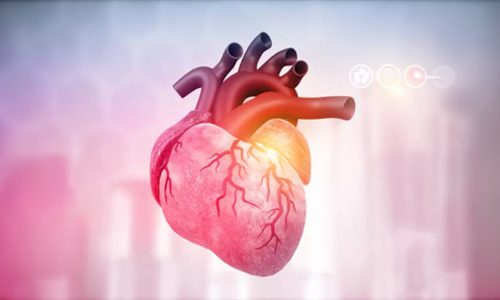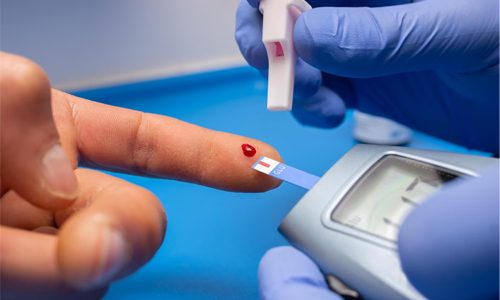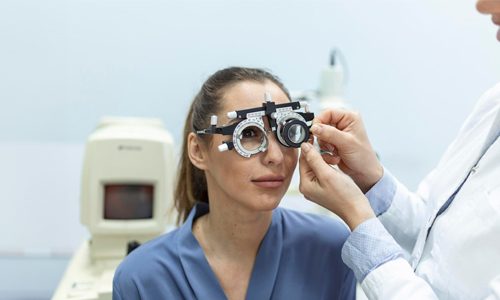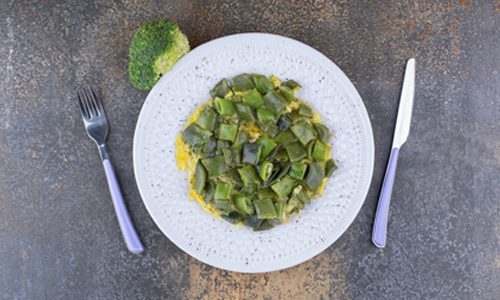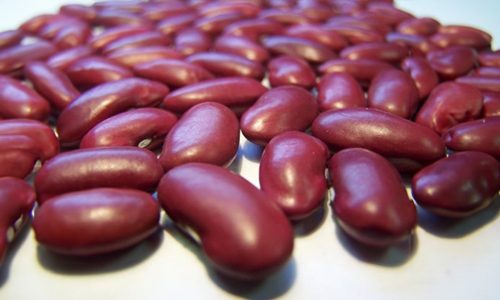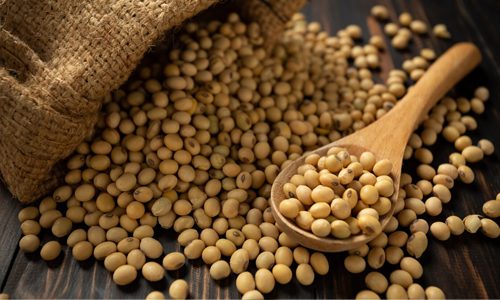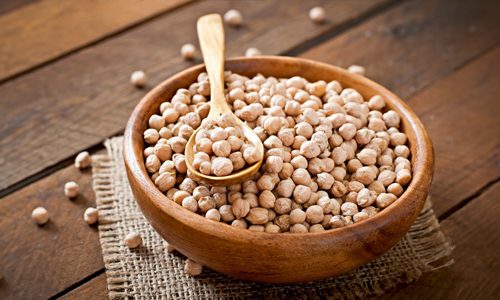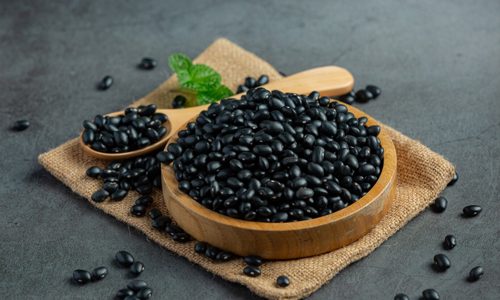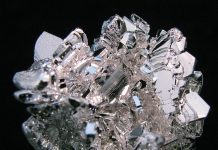Beans are a nutritious and versatile food that is commonly consumed worldwide. They are a member of the legume family and come in many different varieties, including kidney beans, black beans, chickpeas, and lentils. In this blog, let’s discuss all the beans nutrition facts in detail. Beans and legumes offer many health benefits, like reducing cholesterol and increasing healthy gut bacteria. Let’s now learn more about different types of beans and legumes and their health benefits.
Nutrition Facts about Beans
The following table contains the quantity of nutrients present in Pinto beans (raw):
| Nutrients | Amount Per 100 grams |
| Calories | 347 |
| Total Fat | 1.2 g |
| Saturated Fat | 0.2 g |
| Cholesterol | 0 mg |
| Sodium | 12 mg |
| Potassium | 1,393 mg |
| Total Carbohydrate | 63 g |
| Dietary Fiber | 16 g |
| Granulated Sugar | 2.1 g |
| Protein | 21 g |
1. Carbohydrates
Beans are an excellent source of carbohydrates, which provide energy for our bodies. They are complex carbohydrates, which means they contain long chains of sugar molecules that are broken down slowly by the body, resulting in a steady release of energy. This is beneficial for maintaining stable blood sugar levels and avoiding energy crashes.
2. Protein
Beans are also a great source of plant-based protein. They are considered “complete proteins,” as they contain all of the essential amino acids that our bodies need but cannot produce on their own. This makes beans an excellent alternative to meat for vegetarians and vegans.
While at it, read about having protein before or after a workout.
3. Fiber
Beans are high in fiber, which is essential for healthy digestion. Fiber helps regulate bowel movements, prevents constipation, and keeps our digestive system running smoothly. Additionally, fiber can help reduce cholesterol levels and improve heart health. These are some beans nutrition facts that you must keep in mind.
4. Vitamins and Minerals
Beans are packed with vitamins and minerals that are essential for our health. They are a good source of iron, magnesium, potassium, and folate. These nutrients are important for maintaining healthy blood pressure, regulating heart rate, and supporting the immune system.
5. Antioxidants
Beans are rich in antioxidants, which are compounds that protect our cells from damage caused by free radicals. Free radicals are unstable molecules that can cause oxidative stress and lead to chronic diseases, such as cancer and heart disease.
We have now discussed just a few of the beans’ nutrition facts. Let’s delve deeper into more advantages of consuming beans. And, here is a study from the National Library of Medicine on the health benefits of plant-based nutrition, which focuses on beans and legumes.
There are various types of beans, such as green beans, kidney beans, soybeans, etc. Learning about the benefits of consuming different types of beans will help you choose from these types, and add them to your daily diet.
Health Benefits of Green Beans
Green beans, also known as string beans or snap beans, are a popular vegetable that belongs to the legume family. They are characterized by their vibrant green color and long, slender shape. Green beans are not only delicious but also offer numerous health benefits. Here are some of the key advantages of including green beans in your diet.
Nutrient-Rich
Green beans are packed with essential vitamins and minerals, including vitamin C, vitamin K, vitamin A, and folate. These nutrients play a crucial role in supporting overall health and well-being.
Antioxidant Power
This is one of the “must-know” bean nutrition facts. Green beans are a rich source of antioxidants, such as flavonoids and carotenoids. These compounds help protect the body against the damaging effects of free radicals, as mentioned earlier when we discussed the health benefits of beans in general.
Heart Health
The fiber content in green beans is beneficial for heart health. Adequate fiber intake has been linked to a reduced risk of cardiovascular diseases, such as heart attacks and strokes. Additionally, the flavonoids in green beans can help lower cholesterol levels and improve blood vessel function.
Digestive Health
Fiber adds bulk to the stool and can alleviate constipation. It also provides nourishment for beneficial gut bacteria, promoting a healthy gut microbiome.
Blood Sugar Control
Green beans have a low glycemic index, meaning they cause a slower rise in blood sugar levels compared to high-glycemic foods. This makes them a suitable choice for individuals with diabetes or those aiming to manage their blood sugar levels.
Bone Health
Green beans contain several nutrients that are important for maintaining healthy bones, such as calcium, magnesium, and vitamin K. These nutrients contribute to bone strength and density, reducing the risk of osteoporosis and fractures.
Weight Management
This is one of the beans nutrition facts that people aiming for weight loss will love! Green beans are low in calories and fat while being rich in fiber, making them a great addition to a weight loss or weight management plan. The fiber content helps promote feelings of fullness and satisfaction, reducing overall calorie intake.
Eye Health
The carotenoids found in green beans, such as lutein and zeaxanthin, have been associated with promoting eye health. These compounds act as antioxidants and may help protect the eyes against age-related macular degeneration and cataracts. Also, read about what to do for healthy eyesight.
Skin Health
The antioxidants in green beans can help protect the skin from damage caused by environmental factors and oxidative stress. Additionally, the vitamin C in green beans is essential for collagen synthesis, promoting healthy skin and a youthful appearance.
How to Consume Green Beans?
To enjoy the maximum benefits of green beans, it is recommended to cook them lightly to retain their nutrients. Steaming, sautéing, or stir-frying green beans are all great cooking methods that help preserve their nutritional value.
How to Cook Green Beans for Babies?
When it comes to cooking green beans for babies, it’s important to ensure they are cooked to a soft and easily digestible texture. Here’s a simple method to cook green beans for your baby:
- Wash the green beans thoroughly under running water to remove any dirt or residue.
- Trim off the ends of the green beans.
- Cut the green beans into small, bite-sized pieces to prevent choking hazards.
- Fill a pot with water and bring it to a boil.
- Add the cut green beans to the boiling water and let them cook for about 5-7 minutes or until they become tender.
- Once the green beans are cooked, drain them and rinse them with cold water to stop the cooking process.
- You can serve the cooked green beans as they are, or if you prefer a smoother texture, you can puree them using a blender or food processor.
- Allow the cooked green beans to cool down before serving them to your baby.
It’s important to note that when introducing green beans to your baby’s diet, it’s recommended to wait until they are around 6-8 months old and have already started on solid foods. Always consult with your pediatrician before introducing any new food to your baby and ensure they are ready for it.
Now that we have discussed the bean’s nutrition facts in general and how to cook them for babies, let’s see how they are beneficial for children.
Advantages of Bean Consumption among Children
Childhood obesity is a growing concern in several countries of the world, including North America. Introducing beans to children can help them maintain a healthy weight. Children eating beans will also have better overall health.
The U.S. Department of Agriculture emphasizes the benefits gained by children who consume beans regularly. As a part of newly introduced guidelines for school meals, the department requires students from kindergarten to 12th grade to be offered at least half a cup of beans per week. During your leisure time, read about getting your children to try new foods!
Benefits of Eating Kidney Beans
One of the most commonly consumed bean types is the kidney bean. Consuming kidney beans helps reduce the risk factors associated with heart disease. In a study conducted among 8 adults, a group that ate 133 grams of red kidney beans had lower blood pressure when compared to the other group that ate the same quantity of rice. This was seen 2 hours after consumption.
Kidney beans are also rich sources of folate, which is crucial for pregnant women. Folate-rich foods are essential for the neurological development of the fetus.
Benefits of Eating Soybeans
When we talk about beans nutrition facts, we cannot ignore the importance of soybeans. They contain high levels of antioxidants known as isoflavones. They are associated with reduced cancer risks. Consuming soybeans is also found to reduce the risks of stomach and gastrointestinal cancers by 15%. However, further research is needed in this area of study.
The benefits of soybeans among women are more when compared to men. For instance, the isoflavones in soybeans serve as “phytoestrogens.” These are compounds that play the same role as the hormone, estrogen, in a woman’s body. However, estrogen levels get reduced in women’s bodies during menopause. This is why many women take isoflavone supplements, which prevent the loss of bone mineral density and also reduce hot flashes at the time of menopause. Also, read about the menstrual cycle changes as you get older.
Benefits of Eating Chickpeas
Since we are discussing the advantages of beans and legumes, we will also take into account chickpeas, also known as “garbanzo beans.” Like all beans and legumes, chickpeas are also rich sources of protein and fiber. They are versatile and affordable.
164 grams (a cup) of cooked chickpeas contain the following nutrients:
269 calories
45 grams of carbohydrates
14.5 grams of protein
12.5 grams of fiber
In addition to the above, chickpeas also contain other nutrients like vitamins and minerals. Here are some more health benefits of chickpeas.
- Chickpeas are known to reduce post-meal blood sugar. Eating hummus, which is made from chickpeas, results in a 5% reduction in post-meal blood sugar.
- The fiber and other plant compounds in chickpeas help improve gut health.
- They help prevent chronic diseases.
- They also help in effective weight management.
Let’s now take a peek at dry beans and their nutrition facts.
What Are Dry Beans?
Dry beans are nothing but beans dry-packed in sealed bags. Pinto, navy, and black beans are some types of dry beans. Soaking dry beans before cooking is a good idea because it reduces the cooking time and makes the beans easier to digest.
Make sure you choose a large vessel for cooking because dry beans that get rehydrated tend to become 2 to 3 times larger than their original size.
Health Benefits of Dry Beans
- Dry beans are a rich source of plant-based protein, which makes them an excellent alternative to meat.
- They are also a more economical option when compared to chicken, pork, and beef.
- They are a good source of water-soluble vitamins, which are important for brain functions and immune system health.
What Are Black Beans?
The black bean is popularly known as the “common bean,” and is one of the dry bean types. Black beans originated in South America, and are one of the primary ingredients in Caribbean and Latin American cuisines.
Apart from the usual nutrients contained in all types of beans, black beans have some anti-nutrients that can make them a bit hard to digest. Therefore, you must soak or boil them before consumption.
Health Benefits of Black Beans
Since black beans have a lower glycemic index, they help people manage blood sugar levels better. Many researchers say that they help improve insulin sensitivity. But more research is required to prove this. When you eat rice with black beans, the rise in blood sugar levels will be less when compared to eating only rice.
Eat Beans for Better Health!
There are no hard and fast rules to consuming beans. Add them to salads, stews, and soups, and experience their myriad benefits! Even though beans might cause digestive problems among some people, they can be avoided using proper cooking methods. Hope this blog on beans nutrition facts has assisted you in gaining more knowledge about this versatile food. We are sure that you will add them to your diet and reap the benefits. However, before you start adding any food item, such as beans, to your daily diet, consult with your doctor/healthcare provider because they know your health history. Get their suggestions and find out the quantity you can consume per day.









